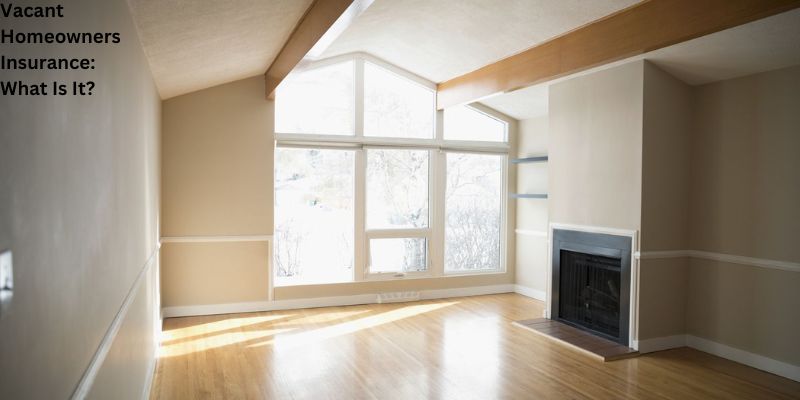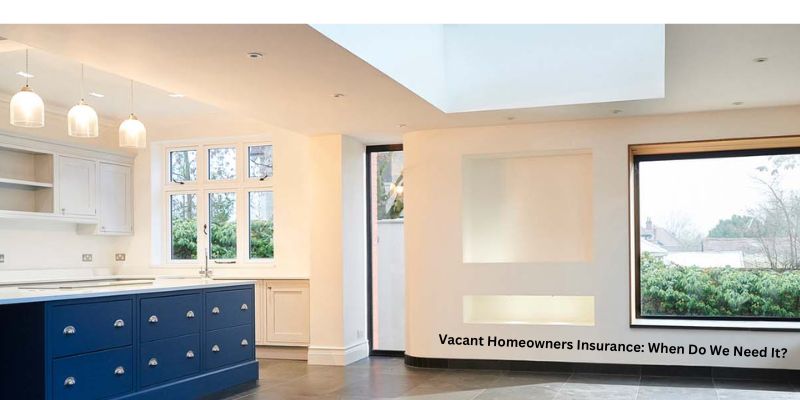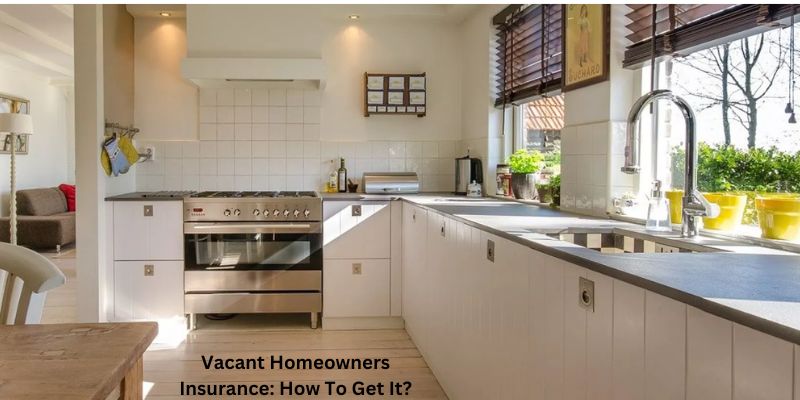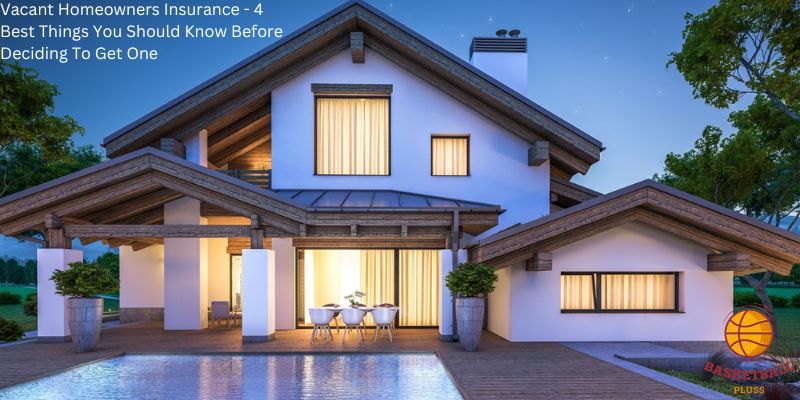Are you a homeowner with a vacant property? If so, you might be wondering about the importance of having homeowners insurance for your vacant property. In this blog post, basketballpluss.com will help you explore the topic of vacant homeowners insurance and provide you with valuable insights and information. So, whether you’re curious about the coverage options available, the benefits of having vacant homeowners insurance, or simply want to understand more about this specialized type of insurance.To learn all you need to know, keep reading.
1. Vacant Homeowners Insurance: What Is It?

When your house is unoccupied for a predetermined amount of time, such as more than 30 or 60 days, a stand-alone vacant home insurance normally protects your house for the problems outlined in the policy, such as fire, windstorm, and hail damage. As a complement to a homeowner’s insurance policy, vacant house insurance is also available as an endorsement. A vacancy permit endorsements to your home insurance policy stops part or all of the limitations on unoccupied homes that are applicable to your home after it has been vacant for a predetermined amount of time, usually longer than 30 or 60 days.
For instance, vandalism and theft are often not covered by a regular home insurance policy if the house is unoccupied. Theft and vandalism are often protected by a vacant permit endorsement.
2. Vacant Homeowners Insurance: What Does It Cover?
The following issues are often covered by a normal unoccupied home insurance policy, however the list might vary by insurance provider, so make sure to verify your policy: a plane, an explosion, a fire, hail, lightning, riot or civil disturbance, smoke, vehicles, volcanoes, windstorm.
Insurance providers may provide unoccupied house insurance in several areas, which would cover any issues outside those specifically covered by the policy. Adding the following to a typical unoccupied house insurance coverage may also be possible:
- Coverage for detached buildings, such as a shed, which compensates if they are harmed by an issue covered by your insurance.
- Coverage for mischief and vandalism, if not already covered by the standard insurance.
- Liability house insurance, which covers claims and legal actions brought against you if you are found legally liable for unintentional harm or injury to others (unrelated to a car accident).
- Personal property insurance provides compensation if your possessions are lost or destroyed as a result of an insured event, such as a fire.
3. Vacant Homeowners Insurance: When Do We Need It?

In general, empty home insurance is required for anyone who vacates their home for longer than 30 days. For instance:
- Your former house is now vacant while it is on the market since you moved into a new one.
- You recently purchased a house but haven’t moved in yet.
- A house that you inherited is vacant until it is sold.
- Renovations are being done to the home.
- In foreclosure is the house.
Following the determination that a property is “empty,” many insurers will suspend, limit, or even refuse to offer (basic) coverage. Insurers generally hesitate to provide coverage for abandoned buildings, according to Bill Martin, President & CEO of Plymouth Rock Home Assurance, because of the greater risk of vandalism, burglary, or damages from improperly maintained equipment like frozen pipes. For this reason, getting unoccupied home insurance is essential.
4. Vacant Homeowners Insurance: How To Get It?

There are several types of vacant home insurance. Depending on the insurance provider, the following options are available for obtaining unoccupied house insurance. Recommendation for home insurance. Some insurance providers provide an endorsement that alters the standard homeowners insurance policy to include vacancy coverage. For instance, Safeco provides an endorsement for abandoned homes.
Standalone insurance for empty homes. Some businesses provide unique coverage for unoccupied houses. Insurance companies including American Family, American Modern, Foremost (a division of Farmers), and VacantExpress offer stand-alone unoccupied house insurance.
Policy premium. Some insurance firms add a fee if a house is determined to be empty in order to account for the vacancy. For instance, PURE will charge 20% and AIG Private Client Group may add a 25% fee to an empty house.
Some house insurance providers provide unoccupied home insurance plans for a predetermined length of time, such as three, six, or twelve months. If you plan to travel significantly during that period and no one will be residing in your home, you may get a three-month coverage. If you inherit your mother’s house and have to clear it out and put it on the market, a six-month or a year-long term could make more sense. If the home is inhabited before the conclusion of the insurance period, some insurers may reimburse any unused premiums.
Wendy Cammet, the company’s head of property product management, explains that Foremost offers a yearly insurance with a prorated return if the buyer cancels during the term. The unused amount of the coverage period will be refunded if you sell the home, move back in, or decide you no longer need the insurance.
Conclusion
In conclusion, vacant homeowners insurance is a crucial investment for property owners who find themselves with an unoccupied property for an extended period. This specialized insurance coverage provides protection against a wide range of risks and liabilities that may arise during the vacancy period. By obtaining vacant homeowners insurance, property owners can have peace of mind knowing that their investment is safeguarded against potential perils such as vandalism, theft, damage from natural disasters, and legal claims.

